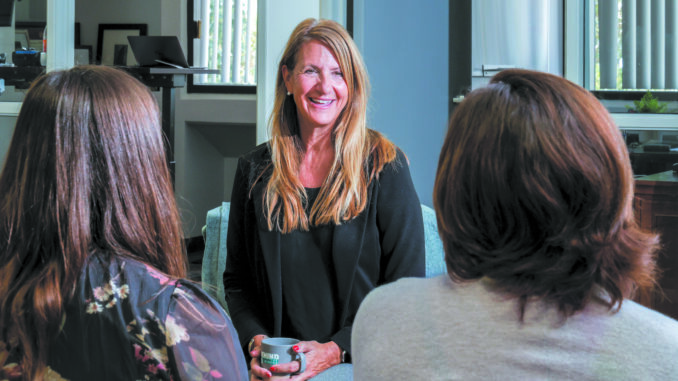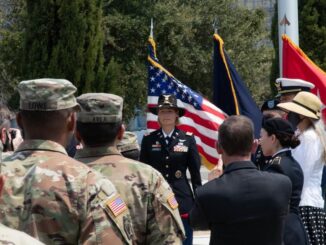
PsychArmor helps educate care providers on military culture
by Jacob Peterson
A key part to addressing the unique health and wellness issues faced by members of our armed services is understanding the military culture they’re coming out of—which is something the people at PsychArmor deeply understand.
Based in San Diego, PsychArmor is a nonprofit organization that works to better educate members of the civilian community who provide support to veterans about military culture. The organization’s stated mission is “to transform the way our nation engages with the military and veteran community through the power of education and training.”
Tina Atherall, PsychArmor’s CEO, says a big part of this is helping educate clinicians and therapists to better understand veterans.
“We like to raise the awareness that although a military individual might come from a very diverse population of people—different races, different ethnicities—the military is a culture of its own.”
Tina Atherall, CEO of PsychArmor
“We like to raise the awareness that although a military individual might come from a very diverse population of people—different races, different ethnicities—the military is a culture of its own,” Atherall says.
One of the ways PsychArmor supports military veterans is by asking those with military experience what they’d like the civilian community to know. The response from this developed into a “15 things Veterans Want You to Know” course, which Atherall says has become a staple of the foundation.
“It raises awareness that there’s a unique culture to the veteran individual, and then it says what to know,” Atherall said.
Atherall said PsychArmor has worked closely with state and county offices since its founding in 2013, and particularly with the San Diego Office of Military and Veterans Affairs (OMVA). The PsychArmor team also includes several San Diego-based veterans and active military family members.
“Uniquely, in San Diego, suicide is a very highlighted problem to the military-connected community because our numbers are higher,” Atherall says.
Atherall says many of the techniques and resources available to veterans are the same for non-veterans, but what PsychArmor adds is an additional understanding of issues unique to those who’ve served.
“In the military population we have a culture with a high ownership of firearms,” Atherall offers as an example. “So we take that from a very respectful place of understanding and knowledge and then work from there in our strategies around suicide prevention.”
The OMVA uses many of PsychArmor’s materials when working with other organizations and services that deal with veterans to make sure they are reaching an appropriate level of cultural competency. Atherall says the office is a key part of connecting PsychArmor with those services, calling them the base of a “connective tissue” of services.
“For anybody who is working and cares deeply about supporting the military-connected community in San Diego, and in particular with this office,” Atherall says, “the work that PsychArmor does is critical to raising the awareness of how to effectively engage with and better support all of those efforts.”
For more information on classes and other services provided by PsychArmor, go to psycharmor.org.



